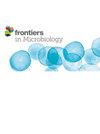Effect of intestinal microbiota transplantation on chronic hepatitis B virus infection associated liver disease
IF 4
2区 生物学
Q2 MICROBIOLOGY
引用次数: 0
Abstract
BackgroundResearch on the effects of intestinal microbiota transplantation (IMT) on chronic HBV infection (CHB) progression associated liver disease (HBV-CLD) and alterations in the microbiota post-IMT are quite limited for the moment.MethodsBy integrating microbiome with metabolome analyses, we aimed to the function of IMT and the alterations of gut microbiota in patients with HBV-CLD. First, this study included 20 patients with HBV-CLD and ten healthy controls. Then, 16 patients with CHB were given IMT with donor feces (heterologous) via oral capsule. Fecal samples from CHB patients were obtained before and after IMT, as well as healthy controls, for 16S rDNA sequencing and untargeted metabolomics analysis.ResultsThe proalbuminemia were significantly increased after IMT, and the HBsAg and TBA showed a significant decrease after IMT in the HBV-CLD patients. There was statistical difference in the Chaol indexes between between CHB patients and healthy controls, suggesting a lower abundance of the gut microbiota in HBV-CLD patients. In addition, there was statistical difference in the Shannon and Simpson indexes between prior to IMT and post-IMT, indicating that the impaired abundance of the gut microbiota had been improved after IMT. The host-microbiota-metabolite interplay, amino acid metabolism, nicotinate and nicotinamide metabolism, starch and sucrose metabolism, steroid biosynthesis, and vitamins metabolism, were significantly lower in HBV-CLD patients than healthy controls.ConclusionIMT may improve the therapeutic effects on patients HBV-CLD. Furthermore, IMT appears to improve amino acid metabolism by impaired abundance of the gut microbiota and therefore improve liver prealbumin synthesis.肠道微生物群移植对慢性乙型肝炎病毒感染相关肝病的影响
背景关于肠道微生物群移植(IMT)对慢性乙型肝炎病毒感染(CHB)进展相关性肝病(HBV-CLD)的影响以及IMT后微生物群的改变的研究目前非常有限。首先,本研究纳入了 20 名 HBV-CLD 患者和 10 名健康对照者。然后,16 名 CHB 患者通过口服胶囊接受了含有供体粪便(异源)的 IMT。结果 IMT 后,HBV-CLD 患者的原白蛋白血症显著升高,HBsAg 和 TBA 在 IMT 后显著下降。CHB患者与健康对照组之间的Chaol指数存在统计学差异,表明HBV-CLD患者肠道微生物群的丰度较低。此外,IMT 前和 IMT 后的 Shannon 和 Simpson 指数也存在统计学差异,这表明肠道微生物群丰度受损的情况在 IMT 后得到了改善。与健康对照组相比,HBV-CLD 患者的宿主-微生物群-代谢物相互作用、氨基酸代谢、烟酸和烟酰胺代谢、淀粉和蔗糖代谢、类固醇生物合成和维生素代谢均显著降低。此外,肠道微生物群的丰度受损,IMT 似乎能改善氨基酸代谢,从而改善肝脏前白蛋白的合成。
本文章由计算机程序翻译,如有差异,请以英文原文为准。
求助全文
约1分钟内获得全文
求助全文
来源期刊

Frontiers in Microbiology
MICROBIOLOGY-
CiteScore
7.70
自引率
9.60%
发文量
4837
审稿时长
14 weeks
期刊介绍:
Frontiers in Microbiology is a leading journal in its field, publishing rigorously peer-reviewed research across the entire spectrum of microbiology. Field Chief Editor Martin G. Klotz at Washington State University is supported by an outstanding Editorial Board of international researchers. This multidisciplinary open-access journal is at the forefront of disseminating and communicating scientific knowledge and impactful discoveries to researchers, academics, clinicians and the public worldwide.
 求助内容:
求助内容: 应助结果提醒方式:
应助结果提醒方式:


